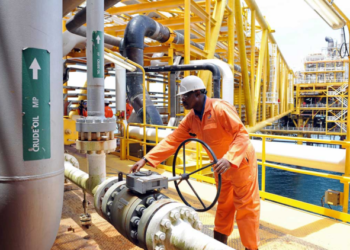The Organization of Petroleum Exporting Countries and its allies (OPEC+) has taken decision to maintain their existing oil-production strategy at a review, resisting pressure from former U.S. President Donald Trump to lower crude prices.
A panel of key members, led by Saudi Arabia and Russia, upheld plans to limit crude supplies for the rest of the quarter before gradually increasing output in monthly increments starting in April.
According to a statement released after the meeting, the Energy Ministry of OPEC-member Algeria said in a statement reaffirmed its commitment to maintaining production discipline to prevent a supply surplus.
The coalition has been withholding oil for over two years in an effort to stabilize prices and has already delayed production increases three times.
“Despite some doubts, market fundamentals remain strong, as indicators of economic growth recovery are showing in several regions.
“We expect a greater recovery in demand for oil starting next April after a seasonal slowdown during the first three months of the year.”
Energy Ministry of OPEC-member Algeria
This decision indicates that the oil cartel remains cautious about increasing supply too quickly, particularly as concerns persist regarding demand weakness in China and expanding alternative supplies from the Americas.
Former U.S. President Donald Trump had publicly urged OPEC+ to increase production in order to bring down fuel costs. However, the issue was not directly addressed in the meeting.
Russia’s Deputy Prime Minister Alexander Novak, in an interview acknowledged that Trump’s concerns were considered during discussions.
“The issue is certainly on the agenda in terms of market analysis and how the agreement is working today.”
Russia’s Deputy Prime Minister Alexander Novak
All ministers present at the Joint Ministerial Monitoring Committee (JMMC) meeting reaffirmed their commitment to OPEC+’s market-balancing efforts, underscoring the alliance’s cautious approach to production increases.
The JMMC meeting primarily focused on monitoring member countries’ compliance with existing production agreements and addressing compensation for past overproduction, delegates reported.
In a notable change, the committee altered its external monitoring sources for assessing member nations’ production levels.
It removed two of the previous seven sources—Norwegian consultancy Rystad Energy AS and the U.S. Energy Information Administration (EIA)—and replaced them with consultants Kpler, OilX, and ESAI.
This revision suggests an ongoing effort within OPEC+ to refine its production data sources, possibly in response to concerns about accuracy and transparency.
OPEC+ Stands Firm Amid Shifting Global Oil Dynamics

The meeting signals that OPEC+ is in no rush to accommodate Trump’s demands, particularly in light of an evolving global oil landscape.
While the former U.S. president has advocated for lower fuel costs, the cartel remains wary of flooding global markets with excess supply, particularly as demand concerns persist in key consumer markets like China.
Additionally, North American oil producers continue to expand output, adding another layer of complexity to OPEC+’s market-balancing strategy.
The recent announcement of trade tariffs on Canada and Mexico has also influenced market sentiment, reflecting the shifting economic policies in key oil-producing regions.
Brent crude futures briefly climbed above $77 per barrel following the OPEC+ meeting, indicating that traders remain uncertain about the supply-demand balance.
While some analysts expected OPEC+ to ease production constraints in response to Trump’s pressure, the group’s cautious stance suggests a preference for maintaining price stability over appeasing external demands.
As OPEC+ prepares to gradually increase production starting in April, industry observers will closely watch global demand trends, particularly in China and the United States. The balance between controlled production increases and market stability will be critical in shaping oil price trajectories in the months ahead.
For now, OPEC+’s decision to maintain its existing strategy highlights its commitment to a measured, disciplined approach—one that prioritizes market fundamentals over political pressure.
READ ALSO: Dr. Seidu Zakaria Appointed as Managing Director of NIB





















